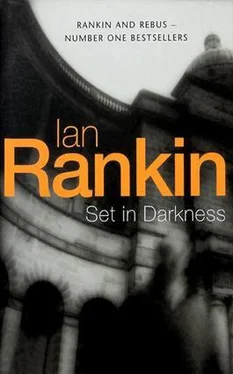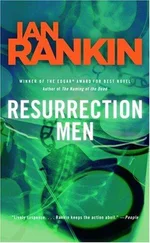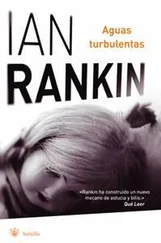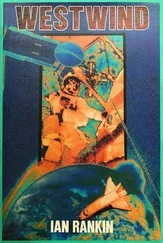Ian Rankin
Set in Darkness
For my son Kit, with all my hopes, dreams and love
Though my soul may set in darkness
It will rise in perfect light,
I have loved the stars too fondly
To be fearful of the night.
Sarah Williams, ‘The Old Astronomer to his Pupil’
Part One
The Sense of an Ending
And this long narrow land
Is full of possibility...
Deacon Blue, ‘Wages Day’
Darkness was falling as Rebus accepted the yellow hard hat from his guide.
‘This will be the admin block, we think,’ the man said. His name was David Gilfillan. He worked for Historic Scotland and was coordinating the archaeological survey of Queensberry House. ‘The original building is late seventeenth century. Lord Hatton was its original owner. It was extended at the end of the century, after coming into the ownership of the first Duke of Queensberry. It would have been one of the grandest houses on Canongate, and only a stone’s throw from Holyrood.’
All around them, demolition work was taking place. Queensberry House itself would be saved, but the more recent additions either side of it were going. Workmen crouched on roofs, removing slates, tying them into bundles which were lowered by rope to waiting skips. There were enough broken slates underfoot to show that the process was imperfect. Rebus adjusted his hard hat and tried to look interested in what Gilfillan was saying.
Everyone told him that this was a sign, that he was here because the chiefs at the Big House had plans for him. But Rebus knew better. He knew his boss, Detective Chief Superintendent ‘Farmer’ Watson, had put his name forward because he was hoping to keep Rebus out of trouble and out of his hair. It was as simple as that. And if — if — Rebus accepted without complaining and saw the assignment through, then maybe — maybe — the Farmer would receive a chastened Rebus back into the fold.
Four o’clock on a December afternoon in Edinburgh; John Rebus with his hands in his raincoat pockets, water seeping up through the leather soles of his shoes. Gilfillan was wearing green wellies. Rebus noticed that DI Derek Linford was wearing an almost identical pair. He’d probably phoned beforehand, checked with the archaeologist what the season’s fashion was. Linford was Fettes fast-stream, headed for big things at Lothian and Borders Police HQ. Late twenties, practically deskbound, and glowing from a love of the job. Already there were CID officers — mostly older than him — who were saying it didn’t do to get on the wrong side of Derek Linford. Maybe he’d have a long memory; maybe one day he’d be looking down on them all from Room 279 in the Big House.
The Big House: Police HQ on Fettes Avenue; 279: the Chief Constable’s office.
Linford had his notebook out, pen clenched between his teeth. He was listening to the lecture. He was listening .
‘Forty noblemen, seven judges, generals, doctors, bankers...’ Gilfillan was letting his tour group know how important Canongate had been at one time in the city’s history. In doing so, he was pointing towards the near future. The brewery next door to Queensberry House was due for demolition the following spring. The parliament building itself would be built on the cleared site, directly across the road from Holyrood House, the Queen’s Edinburgh residence. On the other side of Holyrood Road, facing Queensberry House, work was progressing on Dynamic Earth, a natural history theme park. Next to it, a new HQ for the city’s daily newspaper was at present a giant monkey-puzzle of steel girders. And across the road from that, another site was being cleared in preparation for the construction of a hotel and ‘prestige apartment block’. Rebus was standing in the midst of one of the biggest building sites in Edinburgh’s history.
‘You’ll probably all know Queensberry House as a hospital,’ Gilfillan was saying. Derek Linford was nodding, but then he nodded agreement with almost everything the archaeologist said. ‘Where we’re standing now was used for car parking.’ Rebus looked around at the mud-coloured lorries, each one bearing the simple word DEMOLITION. ‘But before it was a hospital it was used as a barracks. This area was the parade ground. We dug down and found evidence of a formal sunken garden. It was probably filled in to make the parade ground.’
In what light was left, Rebus looked at Queensberry House. Its grey harled walls looked unloved. There was grass growing from its gutters. It was huge, yet he couldn’t remember having seen it before, though he’d driven past it probably several hundred times in his life.
‘My wife used to work here,’ another of the group said, ‘when it was a hospital.’ The informant was Detective Sergeant Joseph Dickie, who was based at Gayfield Square. He’d successfully contrived to miss two out of the first four meetings of the PPLC — the Policing of Parliament Liaison Committee. By some arcane law of bureaucratic semantics, the PPLC was actually a sub committee, one of many which had been set up to advise on security matters pertaining to the Scottish Parliament. There were eight members of the PPLC, including one Scottish Office official and a shadowy figure who claimed to be from Scotland Yard, though when Rebus had phoned the Met in London, he’d been unable to trace him. Rebus’s bet was that the man — Alec Carmoodie — was MI5. Carmoodie wasn’t here today, and neither was Peter Brent, the sharp-faced and sharper-suited Scottish Office representative. Brent, for his sins, sat on several of the subcommittees, and had begged off today’s tour with the compelling excuse that he’d been through it twice before when accompanying visiting dignitaries.
Making up the party today were the three final members of the PPLC. DS Ellen Wylie was from C Division HQ in Torphichen Place. It didn’t seem to bother her that she was the only woman on the team. She treated it like any other task, raising good points at the meetings and asking questions to which no one seemed to have any answers. DC Grant Hood was from Rebus’s own station, St Leonard’s. Two of them, because St Leonard’s was the closest station to the Holyrood site, and the parliament would be part of their beat. Though Rebus worked in the same office as Hood, he didn’t know him well. They’d not often shared the same shift. But Rebus did know the last member of the PPLC, DI Bobby Hogan from D Division in Leith. At the first meeting, Hogan had pulled Rebus to one side.
‘What the hell are we doing here?’
‘I’m serving time,’ Rebus had answered. ‘What about you?’
Hogan was scoping out the room. ‘Christ, man, look at them. We’re Old Testament by comparison.’
Smiling now at the memory, Rebus caught Hogan’s eye and winked. Hogan shook his head almost imperceptibly. Rebus knew what he was thinking: waste of time. Almost everything was a waste of time for Bobby Hogan.
‘If you’ll follow me,’ Gilfillan was saying, ‘we can take a look indoors.’
Which, to Rebus’s mind, really was a waste of time. The committee having been set up, things had to be found for them to do. So here they were wandering through the dank interior of Queensberry House, their way lit irregularly by unsafe-looking strip lights and the torch carried by Gilfillan. As they climbed the stairwell — nobody wanted to use the lift — Rebus found himself paired with Joe Dickie, who asked a question he’d asked before.
‘Put in your exes yet?’ By which he meant the claim for expenses.
‘No,’ Rebus admitted.
‘Sooner you do, sooner they’ll cough up.’
Читать дальше












